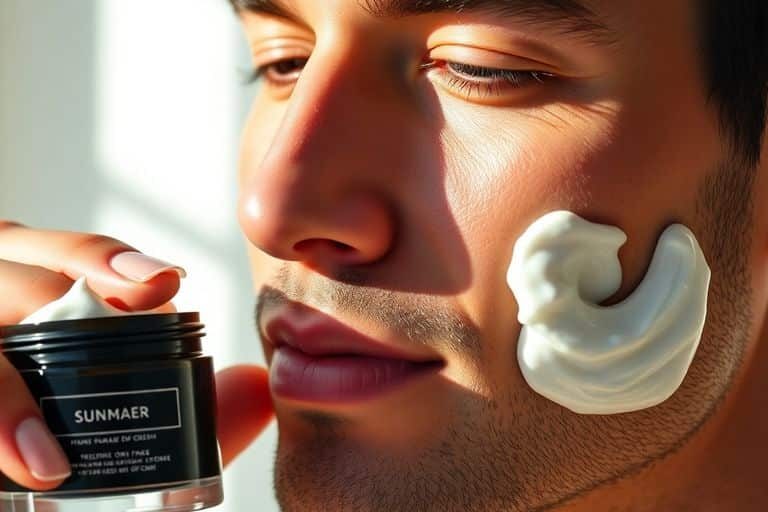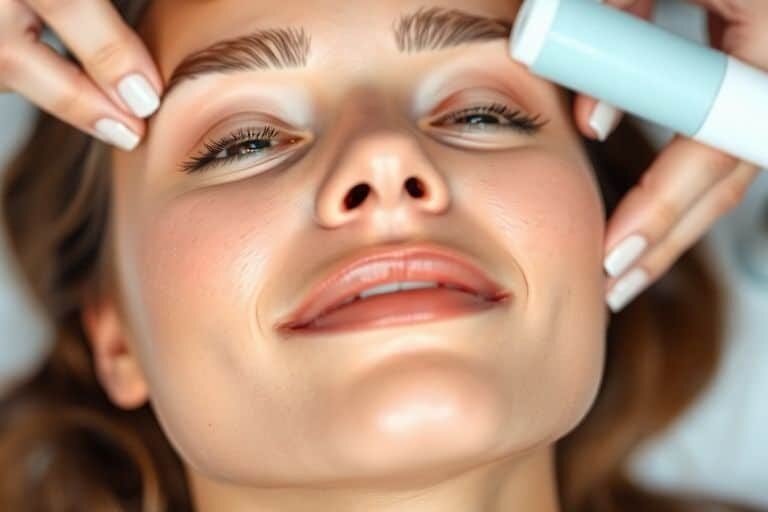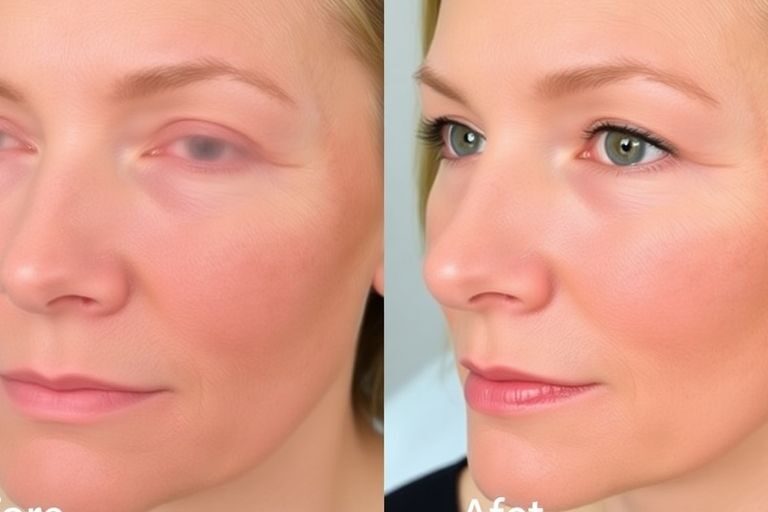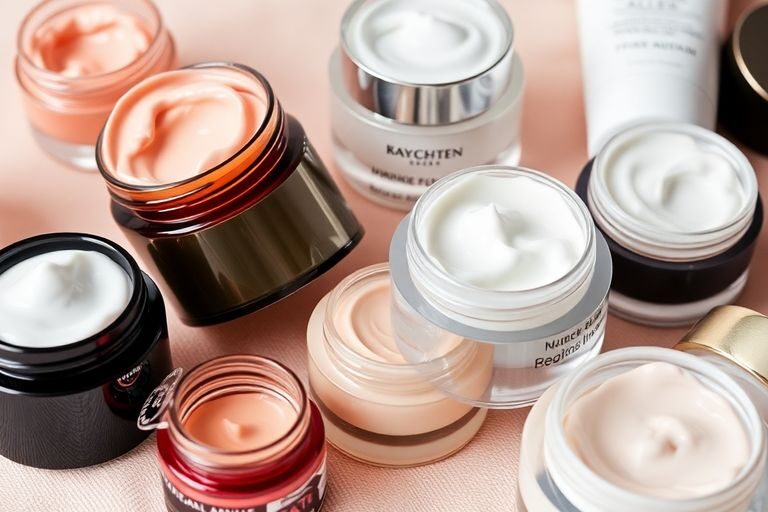Skin whitening injections have become a topic of interest in the UK, especially among those looking to lighten their skin tone. While some people seek these treatments for aesthetic reasons, others may be influenced by cultural standards of beauty. This article aims to explore both the benefits and risks associated with skin whitening injections in the UK, helping readers make informed decisions about their skincare choices.
Key Takeaways
- Skin whitening injections can provide quick results but come with potential risks.
- Regulatory measures in the UK may not fully protect consumers from unsafe practises.
- It’s essential to choose qualified practitioners to minimise health risks.
- Cultural factors heavily influence the desire for skin whitening treatments.
- There are safer alternatives available, including topical treatments and natural remedies.
Understanding Skin Whitening Injections
What Are Skin Whitening Injections?
Okay, so skin whitening injections – what are they actually about? Basically, they’re injections that people use to try and lighten their skin tone. The main ingredient is often glutathione, which is an antioxidant. It’s not just about changing your skin colour, though. Some people use them hoping for a more even skin tone or to reduce the appearance of blemishes.
How Do They Work?
How do these injections actually work? Well, glutathione, the star ingredient, works by reducing the production of melanin in your body. Melanin is what gives your skin its colour. The less melanin you produce, the lighter your skin becomes. Injections bypass the digestive system, delivering the glutathione directly into the bloodstream. The idea is that this makes it more effective than taking pills or applying creams. However, it’s worth noting that the science isn’t always clear-cut, and results can vary a lot.
Common Ingredients Used
So, what’s actually in these injections? Glutathione is the big one, but sometimes you’ll see other ingredients mixed in. Here’s a quick rundown:
- Glutathione: As mentioned, this is the main ingredient. It’s an antioxidant that reduces melanin production.
- Vitamin C: Often added to boost glutathione’s effects and for its antioxidant properties.
- Other Antioxidants: Some injections might include other antioxidants to help protect the skin.
It’s really important to know exactly what’s in any injection you’re considering. Not all products are created equal, and some might contain ingredients that could be harmful. Always do your research and talk to a qualified practitioner.
The Popularity of Skin Whitening Injections in the UK
Cultural Influences on Skin Tone Preferences
Okay, so let’s talk about why skin whitening injections are even a thing here in the UK. A lot of it boils down to cultural ideas about beauty. While a tan used to be the ultimate status symbol, things are changing. You see more and more people wanting lighter skin, influenced by trends from Asia and social media. It’s a complex mix of wanting to fit in, feeling more confident, and chasing an ideal that’s often unrealistic. It’s worth remembering that beauty standards are always changing, and what’s ‘in’ today might be ‘out’ tomorrow. It’s important to consider the cultural influences that drive these trends.
Trends in Aesthetic Treatments
Aesthetic treatments are booming in the UK, and skin whitening injections are part of that wave. Think about it: everyone’s after that quick fix, that instant glow. Injections promise faster results than creams or pills, which is a big draw. Plus, with social media showcasing perfect skin, the pressure to look ‘flawless’ is intense. But it’s not just about vanity. Some people genuinely believe lighter skin will boost their confidence and open doors for them. It’s a whole industry built on these desires, and skin whitening injections are just one piece of the puzzle. The demand for quick and effective solutions fuels the popularity of these treatments.
Demographics of Users
Who’s actually getting these injections? It’s a pretty diverse group, to be honest. You’ve got people from various ethnic backgrounds, all with different reasons. Some are influenced by family or community pressures, others by media portrayals of beauty. Age also plays a role – you see younger people jumping on the bandwagon, but also older folks trying to hold onto their youth. It’s not just one type of person; it’s a mix of ages, ethnicities, and motivations. It’s important to remember that dangerous creams are often used without full understanding of the risks involved.
It’s easy to get caught up in trends, but it’s vital to remember that everyone’s skin is different, and what works for one person might not work for another. Plus, chasing an ideal that’s often based on unrealistic images can be harmful to your self-esteem. It’s all about finding what makes you feel good in your own skin, safely and responsibly.
Potential Benefits of Skin Whitening Injections

Okay, so let’s talk about the good stuff – what you might actually get out of skin whitening injections. It’s not all sunshine and rainbows, but there are potential upsides.
Immediate Results
One of the biggest draws is the promise of quick results. Unlike creams or pills that can take months to show any difference, injections are supposed to work faster. This is because the glutathione goes straight into your bloodstream, bypassing your digestive system.
Think of it like this:
- Creams: Slow and steady wins the race (maybe).
- Pills: A bit faster, but still needs time to be absorbed.
- Injections: Zoom! Straight to the source.
However, ‘immediate’ is relative. You’re probably not going to wake up the next day with a completely different skin tone. It’s more about seeing changes over a few weeks, which is still quicker than other methods.
Long-Term Skin Health
Beyond just changing your skin tone, some people believe that glutathione injections can improve your overall skin health. Glutathione is an antioxidant, and antioxidants are good news for your skin. They help fight off free radicals, which can damage skin cells and lead to ageing.
Here’s a quick rundown of potential long-term benefits:
- Reduced hyperpigmentation: Those dark spots might fade.
- Improved skin texture: Smoother, softer skin is the goal.
- Anti-ageing effects: Fewer wrinkles and fine lines (hopefully!).
It’s important to remember that these benefits aren’t guaranteed, and more research is needed to back them up fully. Plus, a healthy lifestyle (good diet, plenty of water, and sun protection) plays a massive role in long-term skin health too.
Boosting Confidence
Let’s be real – how you feel about your appearance can have a big impact on your confidence. If glutathione injections help you achieve a skin tone you’re happier with, that could lead to a boost in self-esteem. Feeling good about yourself can affect all areas of your life, from your relationships to your career.
But it’s crucial to have realistic expectations. Skin whitening isn’t a magic fix for all your problems. It’s just one piece of the puzzle. And remember, beauty comes in all shades!
Risks and Side Effects of Skin Whitening Injections
Common Side Effects
Okay, so let’s be real – skin whitening injections aren’t all sunshine and rainbows. Like any medical procedure, there are potential side effects. Some of the more common ones I’ve heard about include:
- Redness and swelling at the injection site: This is pretty standard and usually clears up within a few days.
- Bruising: Because, you know, needles.
- Headaches: Some people report getting headaches after the injection.
- Nausea: Feeling a bit queasy isn’t uncommon either.
- Skin irritation: Topical glutathione can cause mild skin irritation that may include redness or itching.
These side effects are generally mild, but it’s still important to be aware of them. If anything feels off, definitely get in touch with your practitioner.
Serious Health Risks
Now, this is where things get a bit more serious. While rare, there are some significant health risks associated with skin whitening injections, especially if they’re not administered properly or if the ingredients are dodgy. I’m talking about:
- Allergic reactions: These can range from mild rashes to severe anaphylaxis, which is life-threatening.
- Infections: If the needles or equipment aren’t sterile, you could end up with a nasty infection.
- Liver and kidney damage: Some of the ingredients used in these injections can put a strain on your liver and kidneys.
- Nerve damage: Improper injection techniques can lead to nerve damage, causing pain, numbness, or even paralysis.
- Changes in thyroid function
It’s worth remembering that skin whitening injections haven’t been approved for skin lightening by the FDA, mainly because there hasn’t been enough research into their long-term safety. That’s why it’s super important to only get these injections from qualified professionals in a controlled environment.
Importance of Professional Administration
Seriously, I can’t stress this enough: never, ever get skin whitening injections from someone who isn’t a qualified and experienced practitioner. I’m talking about registered doctors or nurses who know what they’re doing.
Here’s why it matters:
- Proper technique: They know how to administer the injections safely to minimise the risk of nerve damage and other complications.
- Sterile equipment: They use sterile needles and equipment to prevent infections.
- Quality ingredients: They use safe and regulated ingredients, not some dodgy concoction from who-knows-where.
- Emergency response: They’re trained to handle any adverse reactions or complications that may arise.
Think of it this way: you wouldn’t let just anyone perform surgery on you, would you? Skin whitening injections might seem simple, but they’re still a medical procedure with potential risks. Don’t take chances with your health.
Regulatory Landscape for Skin Whitening Injections
Current UK Regulations
Okay, so let’s talk about the rules around skin whitening injections here in the UK. It’s a bit of a grey area, to be honest. There aren’t super specific laws that say ‘you can’t do this’, but there are regulations that affect how these treatments are offered and administered. For example, if a clinic is offering these injections, they need to be registered with the Care Quality Commission (CQC) CQC registration if they’re carrying out certain regulated activities. This helps ensure they meet certain standards of safety and hygiene.
Also, the Medicines and Healthcare products Regulatory Agency (MHRA) keeps an eye on the safety of medicines used. If the products used in these injections aren’t licenced for use in the UK, that raises some serious red flags. It’s all about patient safety at the end of the day.
Comparison with Other Countries
It’s interesting to see how different countries handle this. In some parts of Asia, skin whitening is way more common, and the regulations might be more defined, even if not always stricter. The US, for example, hasn’t approved glutathione injections for skin lightening because they want more research on long-term safety. So, you see a real mix of approaches globally. Some countries have specific rules, others rely on general safety regulations, and some are still figuring it out. Here’s a quick comparison:
- UK: Relies on general safety and CQC registration for clinics.
- USA: FDA hasn’t approved glutathione for skin lightening.
- Asia: Varies widely, some countries have specific regulations.
Role of Health Authorities
Health authorities like the MHRA and the CQC play a big role. The MHRA makes sure that the medicines used are safe, and the CQC checks that clinics are up to scratch. If something goes wrong, like a patient has a bad reaction, these authorities can investigate and take action. They also provide guidance to healthcare professionals, which helps them stay on the right side of the line. It’s all about keeping people safe and making sure treatments are done properly.
It’s important to remember that just because something is available doesn’t mean it’s risk-free or fully approved. Always do your homework and choose a reputable practitioner. Your health is the most important thing.
Choosing a Qualified Practitioner
Okay, so you’re thinking about skin whitening injections. It’s super important to find someone who knows what they’re doing. I can’t stress this enough – your health is on the line!
What to Look For in a Practitioner
Finding the right practitioner is like finding a good mechanic for your car – you want someone trustworthy and skilled. Here’s what I’d be looking for:
- Qualifications and Credentials: Make sure they’re a registered doctor, nurse, or have relevant qualifications in aesthetic medicine. Don’t be shy about asking to see their credentials. It’s your right to know!
- Experience: How long have they been doing this? Experience counts for a lot. Look for someone who’s performed glutathione injections many times and can show you before-and-after photos.
- Reputation: Check online reviews and testimonials. What are other people saying about their experience? A good reputation is a great sign.
- Cleanliness: The clinic should be spotless. This is a medical procedure, and hygiene is crucial to avoid infections.
- Comprehensive Consultation: They should offer a thorough consultation to assess your suitability for the treatment and discuss your goals and expectations. Revitalise London offers engaging consultations to understand your health history, skin concerns, and desired outcomes.
Questions to Ask During Consultation
Think of the consultation as an interview – you’re interviewing the practitioner to see if they’re the right fit for you. Here are some questions I’d ask:
- What are the potential risks and side effects of the treatment?
- What type of products do you use, and where do they come from? It’s important to know they use quality glutathione products from reputable suppliers.
- How many sessions will I need to see results?
- What is your protocol for dealing with complications?
- Can I see before-and-after photos of your previous clients?
- What aftercare is involved?
Importance of Aftercare
Aftercare is just as important as the procedure itself. Proper aftercare can minimise risks and maximise results. Make sure your practitioner provides clear and detailed instructions on how to care for your skin after the injections. This might include:
- Avoiding direct sunlight.
- Using specific skincare products.
- Attending follow-up appointments.
- Staying hydrated.
It’s also a good idea to ask about what to do if you experience any unexpected side effects or complications after the treatment. Knowing you have support and guidance can make the whole process less stressful.
Choosing a qualified practitioner is the most important step in ensuring a safe and effective experience with skin whitening injections. Don’t rush the process, do your research, and trust your gut. If something doesn’t feel right, walk away.
Alternatives to Skin Whitening Injections

If you’re considering skin whitening, but the idea of injections makes you uneasy, you’re in luck! There are other options out there. Let’s explore some alternatives that might be a better fit for you.
Topical Treatments
Topical treatments are creams, serums, and lotions you apply directly to your skin. They’re often the first thing people try because they’re readily available. The effectiveness of these treatments hinges on how well your skin absorbs the active ingredients.
- Pros: Easy to use, non-invasive, and generally less expensive than injections.
- Cons: Results can be slow and subtle, and some products may cause skin irritation. Absorption can be a big issue, limiting how well they work.
- Common Ingredients: Look for products containing vitamin C, niacinamide, arbutin, or kojic acid. These ingredients can help to reduce skin pigmentation and brighten your complexion.
Oral Supplements
Oral supplements, like pills or capsules, are another alternative. Glutathione is a popular choice, but it’s important to know that its effectiveness when taken orally is debated. Research suggests that the body doesn’t absorb oral glutathione as well as it does when it’s injected.
- Pros: Convenient to take, and some supplements offer additional health benefits.
- Cons: Absorption can be poor, and results may be minimal. It’s also important to talk to your doctor before starting any new supplement, as they can interact with medications or have side effects.
- Things to consider: Look for supplements with ingredients that support glutathione production, like vitamin C and selenium. Always check the dosage and quality of the product.
Natural Remedies
Natural remedies involve using ingredients found in nature to lighten the skin. Things like lemon juice, yoghourt, and honey are often touted for their brightening properties. However, it’s important to approach these remedies with caution, as they may not be suitable for everyone.
- Pros: Often inexpensive and readily available.
- Cons: Results are usually very subtle and may take a long time to appear. Some natural ingredients can also irritate or damage the skin, especially if used improperly.
- Important Note: Always do a patch test before applying any natural remedy to your entire face. If you experience any redness, itching, or burning, stop using it immediately.
It’s important to remember that everyone’s skin is different, and what works for one person may not work for another. Before trying any skin-lightening treatment, it’s always a good idea to talk to a dermatologist or other qualified healthcare professional. They can help you determine the best approach for your skin type and concerns.
Final Thoughts on Skin Whitening Injections
In summary, skin whitening injections, particularly those using glutathione, are gaining popularity in the UK. They promise a brighter complexion and have some antioxidant benefits. However, it’s essential to weigh these potential perks against the risks involved. The lack of long-term safety data and the possibility of side effects mean that anyone considering these treatments should proceed with caution. Always consult a qualified professional who can provide tailored advice based on your individual health needs. Remember, achieving healthy skin should be the priority, and there are safer, more sustainable ways to enhance your natural beauty.
Frequently Asked Questions
What exactly are skin whitening injections?
Skin whitening injections are treatments that aim to lighten the skin tone. They usually contain ingredients like glutathione, which is believed to reduce melanin production.
How do these injections work?
These injections work by delivering active ingredients directly into the bloodstream, which may help to lighten the skin more effectively than topical creams.
What are the common ingredients found in these injections?
The most common ingredient is glutathione, but some injections may also contain vitamin C or other compounds that are thought to help with skin lightening.
What are the benefits of using skin whitening injections?
Some users report immediate results, improved skin health over time, and increased confidence due to a lighter skin tone.
Are there risks associated with skin whitening injections?
Yes, there are risks. Common side effects can include skin irritation and more serious health issues if not administered properly by a qualified professional.
How can I choose a qualified practitioner for these injections?
Look for a practitioner with proper qualifications, check their reviews, and ask them questions about their experience and the safety measures they take.






